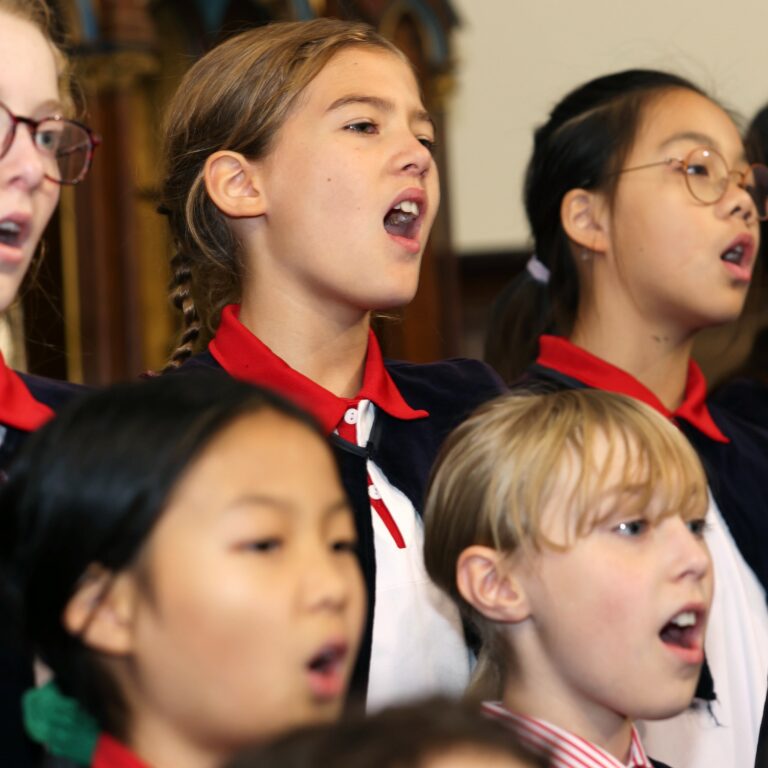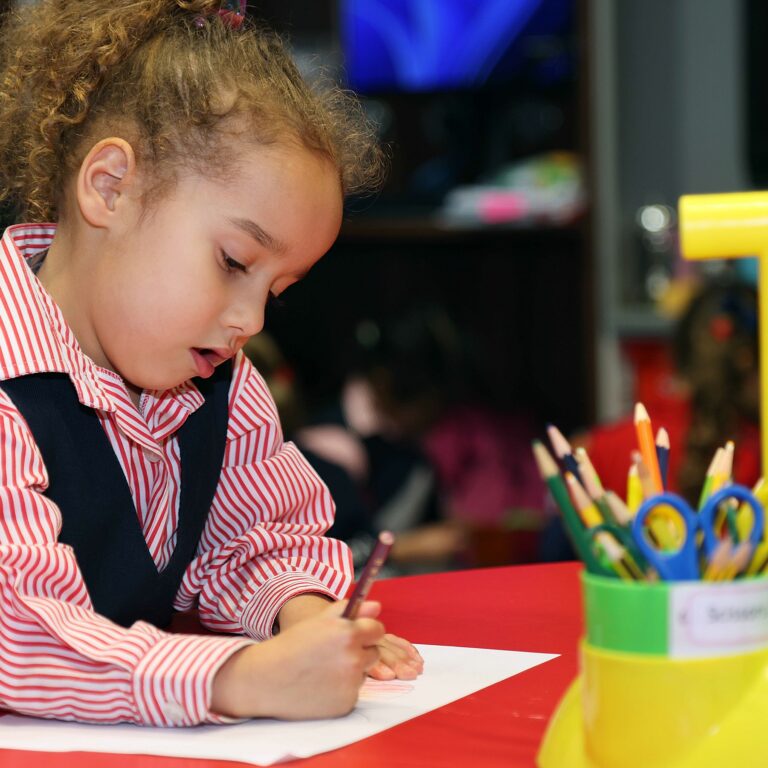At the heart of our curriculum is the belief that religious growth is central to each child’s development. We aim to nurture religiously literate, engaged individuals who reflect spiritually and think ethically, applying their faith in daily life.
Our Aims
- Promote knowledge and understanding of the Catholic faith, with Christ at its centre.
- Ensure all children study R.E. as outlined by the Diocese and RECD.
- Foster religious literacy in Catholic teachings and traditions.
- Encourage love, service, and a deeper commitment to the Catholic faith.
- Provide opportunities for spiritual and personal growth, helping children make informed ethical decisions.
Teaching R.E. Focuses On
- Reflecting on personal and others’ experiences.
- Understanding the Catholic faith and its relevance to daily choices.
- Developing an honest, open, and reflective attitude.
- Promoting respect, friendship, and goodwill.
- Engaging children in religious thinking and practices like prayer, worship, and liturgy.
- Exploring the wider community and respecting diverse faith traditions.
Approach
- R.E. is taught through the “Come and See” programme from Nursery to Year 6.
- We celebrate Mass, prayer services, and assemblies as part of the school’s liturgical life.
- The curriculum adapts to meet the needs of all learners, ensuring support for those with specific learning difficulties while challenging others to reach their full potential.
Equal Opportunities & Inclusion
We provide an inclusive environment where all children are valued and supported in their religious education, regardless of ability, race, gender, or background.
Prayer & Worship
Prayer and liturgical practices, such as Mass and Exposition of the Blessed Sacrament, are integral to school life. Weekly services and prayer sessions foster a strong sense of community and faith.
Curriculum Time
We dedicate 10% of the timetable to R.E., with 2 hours and 15 minutes in Key Stage 1, and 2 hours and 30 minutes in Key Stage 2. Early Years follow the Diocesan “Come and See” framework, aligned with the EYFS curriculum.
Supporting Growth
Through play, exploration, and critical thinking, our children develop both academically and spiritually, preparing them to become thoughtful, compassionate individuals within the school community and beyond.
Planning
Teachers use the Come and See online resources to plan lessons, ensuring differentiation by task or outcome to meet all students’ needs. Spiritual opportunities are incorporated into lesson plans.
Other Faiths
We teach about other faiths as part of the Come and See programme, with specific focus on Hinduism, Judaism, and Islam throughout the year. Visitors from other faiths and educational visits enhance this learning.
Links Between R.E. and Other Subjects
R.E. connects with subjects like Drama, Art, Music, ICT, and PSHCEE. We use a variety of strategies to adapt learning to students’ needs.
Growth (PSHCEE)
In Growth lessons, children explore moral choices using the Ten:Ten scheme, and the values of the Gospels through the St. Mary’s Way and the school’s ethos. The RSE policy guides this area.
ICT in R.E.
ICT supports R.E. learning through interactive whiteboards, iPads, Chromebooks, and audio-visual tools like the Global Learning Centre.
Resources
Teachers have access to planning, RECD, assessment grids, prayers, liturgical calendar events, and various R.E. resources in the school’s R.E. Resource Room.
Assessment
Assessment follows Diocesan guidelines, with continuous teacher evaluations and tracking of pupil progress. In EYFS, assessments are based on observations and recorded in a class book.
Monitoring
R.E. teaching is monitored through lesson observations, planning reviews, work scrutiny, and regular contact with the Diocese.
CPD (Continuing Professional Development)
Teachers receive R.E. training, both school-based and from the Diocese. CPD needs are identified through performance management.
Management of R.E.
The Leaders of Learning for R.E. are responsible for improving teaching quality, supporting staff, ensuring adherence to the RECD and upcoming Religious Education Directory, managing assessment and resources, and facilitating professional development. They also oversee prayer and worship activities and work with the Diocesan R.E. advisor.
The Headteacher ensures R.E. is a key focus in the school, monitors teaching and learning, and supports the Catholic ethos of the school.
Please find our RE Policy here.
CURRICULUM MAP FOR RELIGIOUS EDUCATION (Come and See)
| Topic 1 | Topic 2 | Topic 3 | Topic 4 | Topic 5 | Topic 6 | Topic 7 | Topic 8 | Topic 9 | |
| Domestic Church |
Baptism/ Confirmation Belonging |
Advent/ Christmas Loving |
LOCAL CHURCH COMMUNITY | EUCHARIST RELATING |
LENT/ EASTER GIVING |
PENTECOST SERVING |
RECONCILIATON INTER-RELATING |
UNIVERSAL CHURCH WORLD | |
| Nursery | Myself | Welcome | Birthday | Celebrating | Gathering | Growing | Good News | Friends | Our World |
| Reception | |||||||||
| Year 1 | Families | Belonging | Waiting | Special People | Meals | Change | Holidays and Holydays | Being Sorry | Neighbours |
| Year 2 | Beginnings | Signs and Symbols | Preparations | Books | Thanksgiving | Opportunities | Spread the Word | Rules | Treasures |
| Year 3 | Homes | Promises | Visitors | Journeys | Listening and Sharing | Giving All | Energy | Choices | Special Places |
| Year 4 | People | Called | Gift | Community | Giving and Receiving | Self-Discipline | New Life | Building Bridges | God’s People |
| Year 5 | Ourselves | Life Choices | Hope | Mission | Memorial Sacrifice | Sacrifice | Transformation | Freedom and Responsibility | Stewardship |
| Year 6 | Loving | Vocation and Commitment | Expectations | Sources | Unity | Death and New Life | Witnesses | Healing | Common Good |




